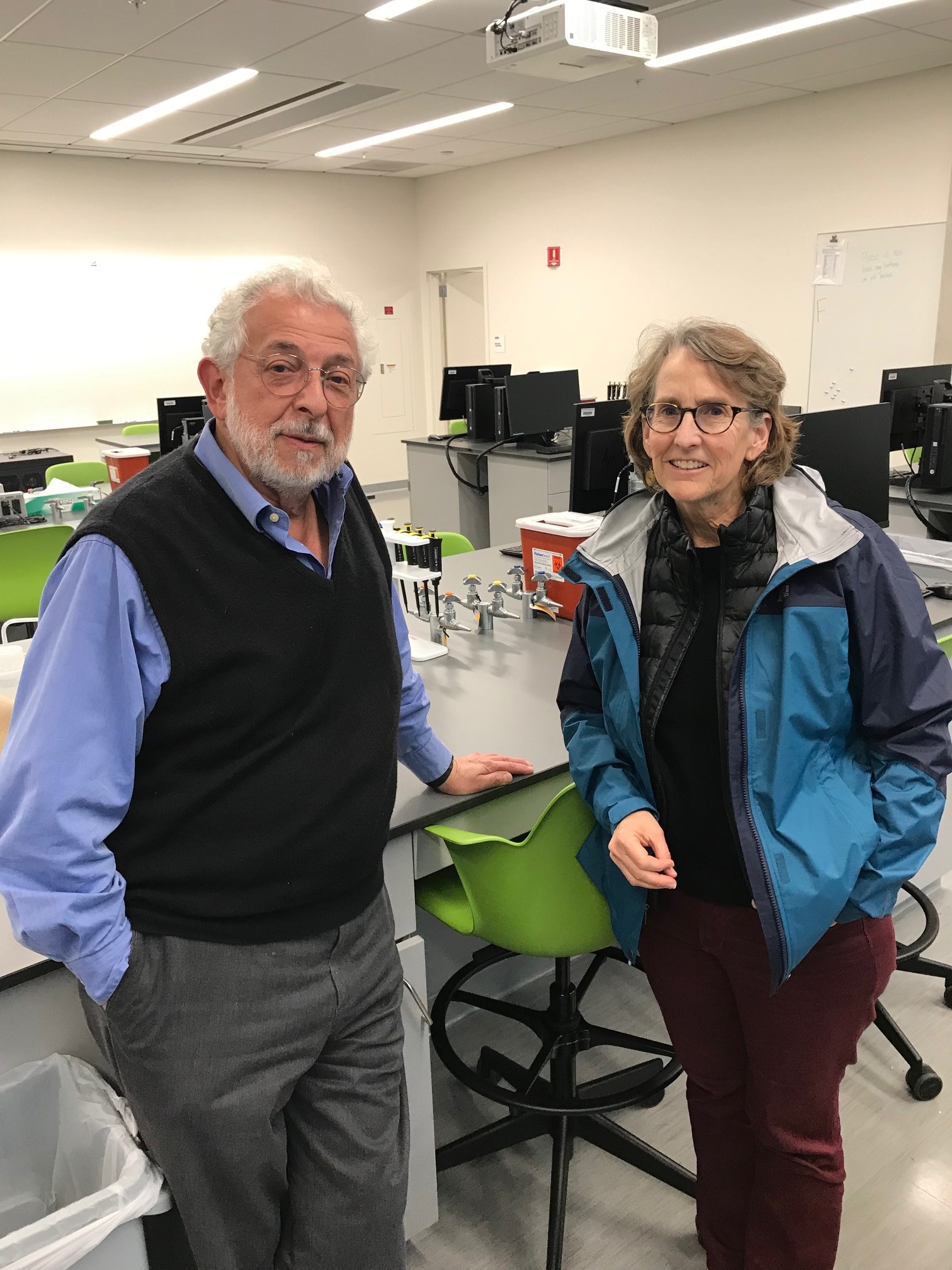Biology Class Addresses Diversity, Equity and Inclusion through a Scientific Framework
March 18, 2019
By: Mario Aguilera

Eduardo Macagno (left) and Stephanie Mel (right)
Prior to a handful of years ago, UC San Diego science students seeking to fulfill their diversity, equity and inclusion (DEI) graduation requirement looked to the catalog of social sciences and humanities offerings.
Now, Biological Sciences undergraduates have been increasingly turning to BILD 60, a course that examines DEI issues under a biological science framework.
“For me this class was a new way of looking at DEI,” said Stephanie Mel, a biology teaching professor who helped launch the course. “It’s also a new way of looking at biology for these students. It fulfills the requirement but there’s more of a global goal: If the students come out of this class and it has changed their thinking in any kind of significant way—if they are going to look at the world differently or interact with people differently—then I feel like we have accomplished our goal.”
“BILD 60: Exploring Issues of Diversity, Equity, and Inclusion in Relation to Human Biology” is a product of the Division of Biological Sciences’ Diversity Committee. Biological Sciences Founding Dean Eduardo Macagno, working with Mel and committee members Lakshmi Chilukuri, Tracy Johnson and Suzanne Lee, recognized the need for a course that looked at DEI issues through a scientific lens. They started a five-week, one-unit pilot course, which proved popular enough to evolve into a 10-week, two-unit course and finally a full 10-week, four-unit class that fulfills UC San Diego’s undergraduate DEI course requirement.
“Kudos to Professors Macagno and Mel for creating the Division’s first DEI course,” said Gentry Patrick, a Division of Biological Science’s professor of neurobiology and director of mentorship and diversity. “BILD 60 helps activate a much needed conversation about diversity and inclusion among our biology majors.”
Demand for the course has been so high that the original one-quarter course taught by Mel and Macagno has expanded to three courses across the 2018-2019 academic year, taught in Fall 2018 (Macagno), Winter 2019 (Mel) and Spring 2019, when it will be taught for the first time by Ecology, Behavior and Evolution Associate Professor Scott Rifkin.
The class size is kept small (48 students) to allow for effective discussion, interactivity and break-out groups. One of the key elements of the class is driving home the idea that DEI issues cut across our daily interactions and throughout society. To that end, students are assigned weekly summaries of current news articles about DEI issues that include facets of biology and medicine.
“We want them to have a mindset that this is an important aspect of what is happening in their lives right now,” said Macagno. “We want students to see this as a living problem. It’s existential. There is nothing theoretical about the fact that we have been and in many ways still are a racist, sexist society. We are so geared toward exclusion and discrimination that we don’t even know it’s there.”
Macagno says many BILD 60 students are pre-meds, so part of the teaching plan is to sensitize these students about DEI issues before they head off to medical school.
“They are going to be physicians for everybody, so if they see something that is not inclusive, they should question it,” said Macagno. “I think this class helps open their eyes to what they will be facing as scientists and physicians.”
Mel says the class is designed to have students think about how DEI issues can have a direct effect on biology and health. She prompts students to think about these concepts from an individual level, societal level and from a biological sciences perspective.
“BILD 60 is a unique course, as it allows students to confront and examine issues in diversity, equity and inclusion in the context of biomedical research, highlighting both the societal impact of research and the social responsibility of scientists,” said Division of Biological Sciences Dean Kit Pogliano. “I’m grateful that Professors Mel and Macagno and their colleagues had the foresight and inspiration to create this innovative platform to teach diversity, equity and inclusion from a scientific perspective for our biology students. Their hard work has paid off, delivering a very popular course that prepares our students to lead in an increasingly diverse and complex world.”
In developing the class, Mel and her colleagues knew these students felt more connected to biology than other disciplines, and used that fact as a tool of engagement.
According to Mel, “We thought: Wouldn’t it be wonderful if we could take a field that students already feel more engaged in, and then help them connect this field to DEI issues in ways that they’ve not necessarily thought about before? That seems to be exactly what’s happened.”
